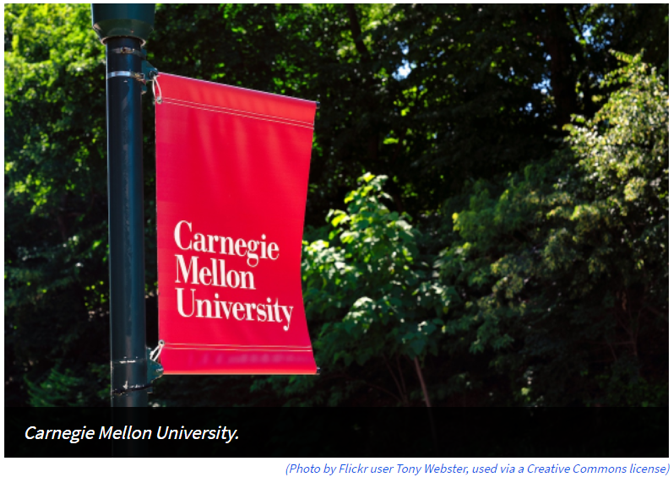Amid local and national discussion — and concern — about the same topic, Carnegie Mellon University is launching a new program focused on ethical and responsible use of artificial intelligence.
Responsible AI, as it’s called, is an initiative out of the Oakland-based university’s Block Center for Technology and Society with support from faculty in the School of Computer Science and members of the Dean’s Office staff. Its goal is to convene experts across areas of expertise such as computer science, engineering, public policy and business to further the initiative’s missions. Those include translating research into policy and social impact; building community and serving local and global communities; providing new education and training; and establishing partnership beyond the university to promote the responsible use of AI.
It’s one of many recent efforts locally to ensure that technologists out of the AI hub are learning how to use it responsibly. Elsewhere in Pittsburgh, the Partnership to Advance Responsible Technology issued an inaugural report earlier this year on the topic, and a recent study from the University of Pittsburgh’s Institute for Cyber Law, Policy and Security reviewed local use of public algorithms.
The initiative launched this week with a panel discussion of experts in AI use and policy, including representatives from the White House, the Patrick J. McGovern Foundation, Salesforce and CMU’s School of Computer Science. The hour-long discussion centered on the vision for the new initiative, as well as the common problems identified around AI across academia and the public and private sectors and was moderated by Rayid Ghani, a distinguished career professor in the CMU Machine Learning Department and Heinz College of Information Systems and Public Policy.
The original article was posted here.
The Boston Global Forum (BGF), in collaboration with the United Nations Centennial Initiative, released a major work entitled Remaking the World – Toward an Age of Global Enlightenment. More than twenty distinguished leaders, scholars, analysts, and thinkers put forth unprecedented approaches to the challenges before us. These include President of the European Commission Ursula von der Leyen, Governor Michael Dukakis, Father of Internet Vint Cerf, Former Secretary of Defense Ash Carter, Harvard University Professors Joseph Nye and Thomas Patterson, MIT Professors Nazli Choucri and Alex ‘Sandy’ Pentland, and Vice President of European Parliament Eva Kaili. The BGF introduced core concepts shaping pathbreaking international initiatives, notably, the Social Contract for the AI Age, an AI International Accord, the Global Alliance for Digital Governance, the AI World Society (AIWS) Ecosystem, and AIWS City.










